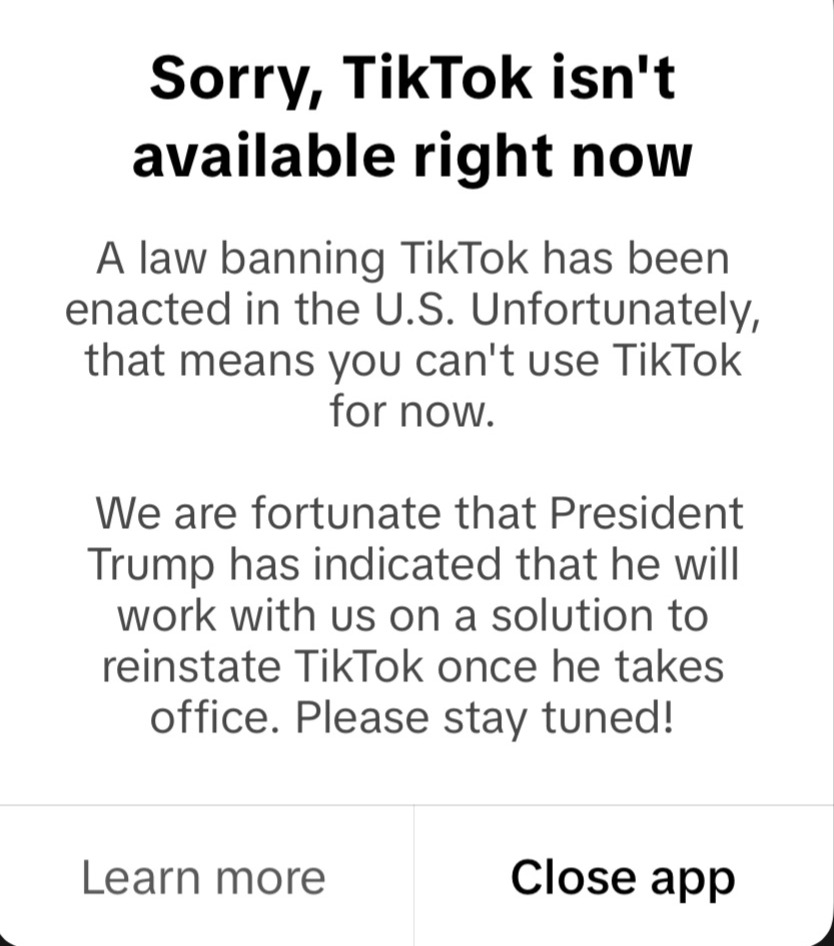Threat or benefit? Claflin talks TikTok
By: ALEXIS WILSON
Feb 05, 2025

A generation is putting trust into an app without knowing the consequences, a Claflin University professor says.
Dr. Luis C. Almeida, a mass communications professor at Claflin, and Jordan Foster, a Claflin freshman, shared their thoughts on the potential TikTok ban in the United States.
Almeida cited a security threat posed by TikTok. China is a growing power and the presence of a Chinese-owned app in America potentially threatens security, he said.
“The Chinese government wants to be in control of what happens,” Almeida said, saying a generation is putting too much trust in TikTok.
Almeida poses the question of Chinese content analysis and what would happen with the collected data.
“China can actually get results of that and better understand the weaknesses that happen within our culture and target those weaknesses,” Almeida said.
The concern for national security stems from the 2024 court case TikTok vs. Garland, which outlines the possible consequences of U.S. data being collected on a China-based app.
However, TikTok vs. Garland produced no sign that China has been undertaking data collection for malicious intent. According to the court case, it can happen but there has been no substantial proof.
Foster believes there should be no concern about national security. She cites the content people have when posting on the internet.
“I don’t believe that is a substantial concern because people are too comfortable on the internet where they are willing to put anything on there,” Foster said.
The way Foster sees it, TikTok may be banned because the government wants to be rid of the communities built through TikTok.
The government wants “to try and disband that community because they see the power that Americans have when they come together, Foster said.
Under the timeline set by an executive order in January by President Donald Trump, TikTok’s China-based parent company, ByteDance, was given a deadline to divest from the platform. The stated concern is national security.
A ban on TikTok initially went into effect Jan. 19, causing it to go dark for a few hours.
TikTok was brought back online after Trump gave the company an extension until April 5. He says he may extend the deadline again.
Almeida sees ramifications for students if TikTok is banned.
TikTok is a search engine and social networking platform where Claflin students can find answers to problems and create relationships through the app, he said. With TikTok potentially gone, this may create a void for some Claflin students.
“So, the kids are going to lose with that because they are so heavily invested,” Almeida said.
Foster agrees and shares how she uses TikTok for research.
“Whether it be for my next recipe or something I want to research, it’s a good tool to get started on when you’re looking for something to do or learn. I have no idea what I’ll use when it’s gone,” Foster said.
While TikTok is a useful tool, Almeida highlights some of the downsides to TikTok as it relates to Claflin students. He primarily notes the lack of face-to-face communication.
“It maybe shows to our kids the value of engaging in interpersonal communication … as a means to maintain your crowd for the long run,” Almeida said.
Furthermore, Almeida notes the harmful content TikTok showcases. He mentions that nudity and vile language are common on the app.
Foster does not want TikTok to be banned, stating how the app provides community, education and an outlet to empower people.
She also says that banning TikTok will affect small businesses and prohibit people from gaining information.
Almeida wishes TikTok and other social media platforms had a label pertaining to potential consequences of joining their sites.
“Why don’t we have side-effects label?” Almeida said.
